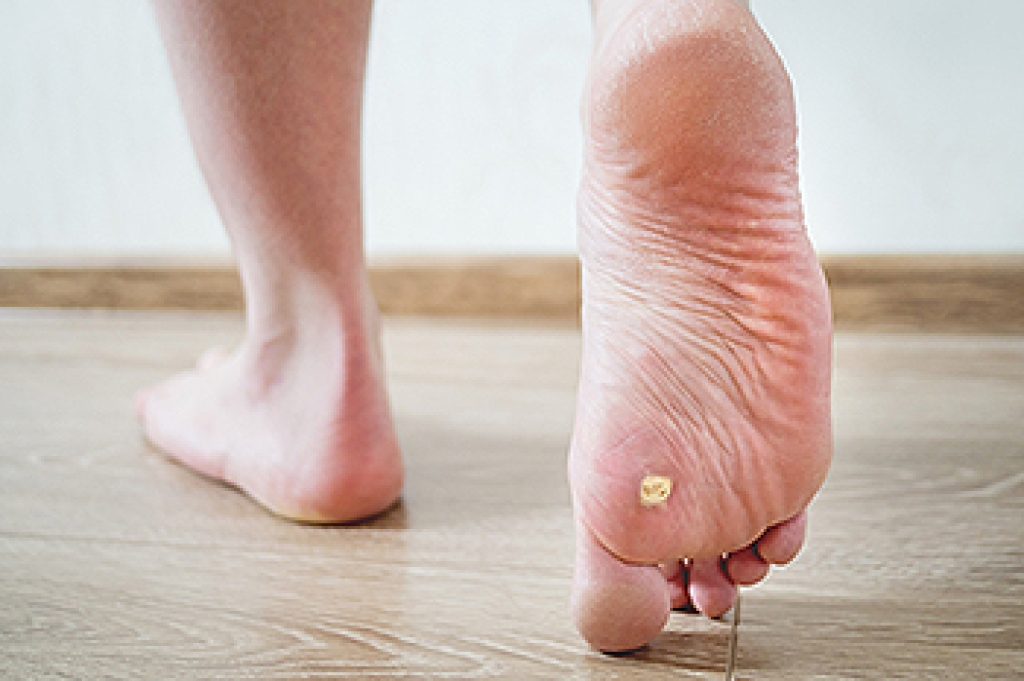
Plantar warts, though often considered minor nuisances, hold interesting facts worth exploring. These warts, caused by the human papillomavirus, or HPV, commonly appear on the soles of the feet, particularly in areas subjected to pressure or friction. Unlike other warts, plantar warts grow inward due to the pressure exerted by walking, leading to a flattened appearance. They may present as small, grainy growths or larger, cauliflower-like clusters. Plantar warts can be painful, especially while walking or standing, as they press into the skin and nerves. Despite their viral origin, they are not highly contagious and are more likely to develop in individuals with weakened immune systems or through direct contact with contaminated surfaces. If you have a plantar wart, it is suggested that you consult a podiatrist who can offer you the treatment option that is right for you.
Plantar warts can be very uncomfortable. If you need your feet checked, contact one of our podiatrists from Arcadia Foot and Ankle. Our doctors will assist you with all of your foot and ankle needs.
About Plantar Warts
Plantar warts are the result of HPV, or human papillomavirus, getting into open wounds on the feet. They are mostly found on the heels or balls of the feet.
While plantar warts are generally harmless, those experiencing excessive pain or those suffering from diabetes or a compromised immune system require immediate medical care. Plantar warts are easily diagnosed, usually through scraping off a bit of rough skin or by getting a biopsy.
Symptoms
- Lesions on the bottom of your feet, usually rough and grainy
- Hard or thick callused spots
- Wart seeds, which are small clotted blood vessels that look like little black spots
- Pain, discomfort, or tenderness of your feet when walking or standing
Treatment
- Freezing
- Electric tool removal
- Laser Treatment
- Topical Creams (prescription only)
- Over-the-counter medications
To help prevent developing plantar warts, avoid walking barefoot over abrasive surfaces that can cause cuts or wounds for HPV to get into. Avoiding direct contact with other warts, as well as not picking or rubbing existing warts, can help prevent the further spread of plantar warts. However, if you think you have developed plantar warts, speak to your podiatrist. He or she can diagnose the warts on your feet and recommend the appropriate treatment options.
If you have any questions, please feel free to contact our offices located in Scottsdale, North Scottsdale, Mesa, and Sun City, AZ . We offer the newest diagnostic and treatment technologies for all your foot care needs.


